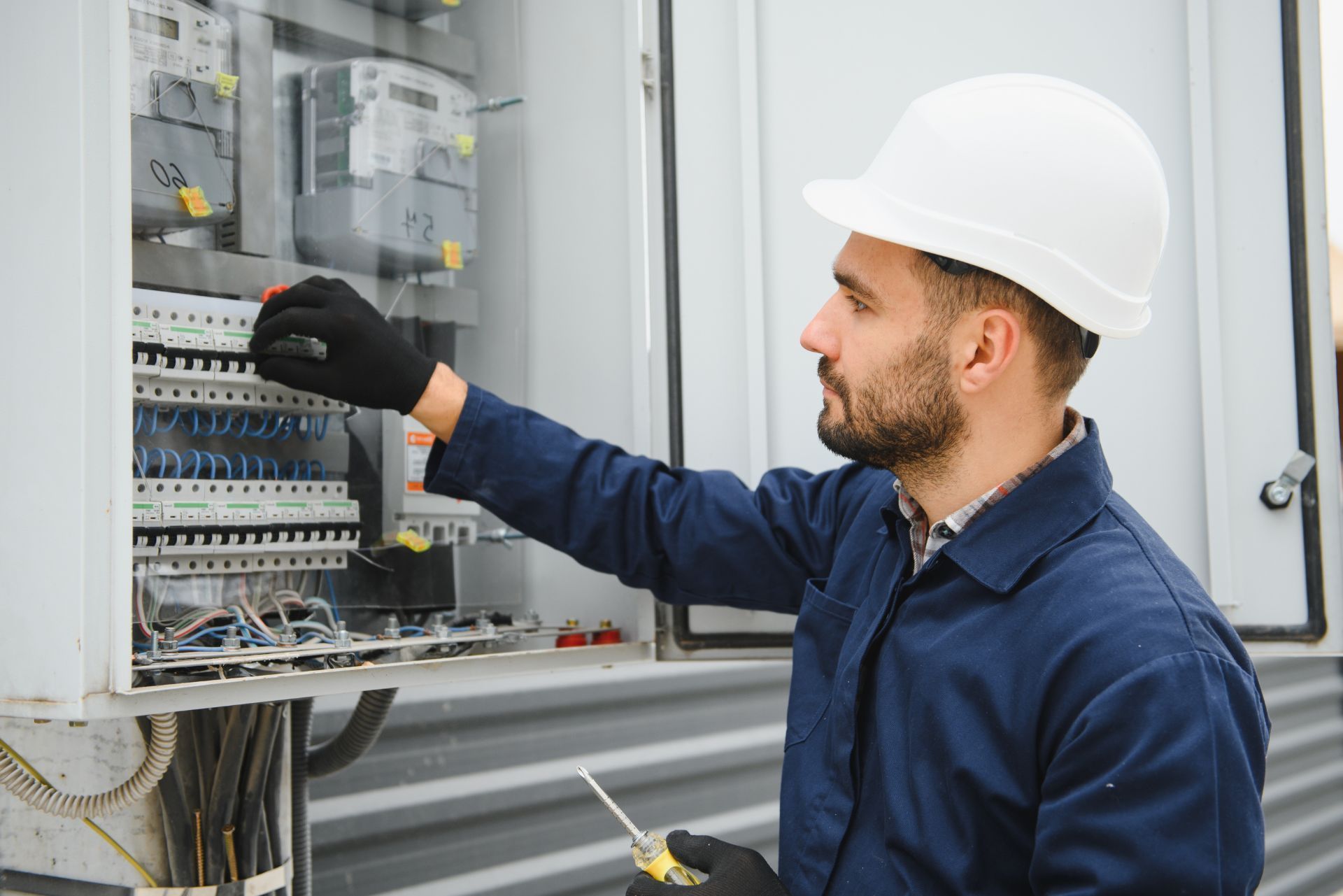For electricians working in Florida, securing the right insurance coverage isn’t just a smart business move — it’s often a legal necessity. The electrical trade involves a unique set of risks, from potential property damage to personal injury, making comprehensive insurance essential for protecting both the electrician and their clients. This guide explores everything you need to know about Florida electrician insurance, helping you understand the types of coverage available, legal requirements, and best practices for safeguarding your business.
Why Insurance is Critical for Florida Electricians
Electricians face a variety of hazards daily, including electrical shocks, fires, and equipment malfunctions. These risks can lead to costly lawsuits or claims, which might jeopardize the financial stability of a business. Insurance acts as a safety net, covering expenses related to accidents, injuries, or damages that occur during the course of work.
In Florida, where the construction and home improvement industries are booming, electricians often work on complex projects involving residential, commercial, and industrial settings. This diversity increases exposure to different types of liabilities, making tailored insurance coverage even more important. For instance, when working on high-rise buildings or intricate commercial systems, the potential for accidents increases significantly, necessitating comprehensive coverage that can address unique challenges faced in these environments.
Statistics Highlighting the Need for Insurance
According to the U.S. Bureau of Labor Statistics, electricians experience a higher-than-average rate of workplace injuries, with electrical shocks and falls being among the most common causes. In Florida specifically, the state's rapid population growth has driven a surge in construction projects, increasing demand for electricians but also elevating the risk of accidents. The influx of new residents has led to a greater number of renovations and new builds, which often require extensive electrical work, further amplifying the potential for on-site incidents.
Moreover, data from the National Fire Protection Association (NFPA) indicates that electrical failures or malfunctions are a leading cause of residential fires nationwide, underscoring the importance of liability coverage for electricians working on home wiring and installations. The stakes are particularly high in Florida, where the combination of high humidity and frequent thunderstorms can exacerbate electrical issues, leading to increased risks for both electricians and homeowners. As a result, having the right insurance not only protects electricians financially but also enhances their credibility and trustworthiness in the eyes of clients who are increasingly aware of the potential hazards associated with electrical work.

Types of Insurance Coverage for Florida Electricians
Electricians in Florida should consider multiple types of insurance to fully protect their business. Each type addresses different risks and liabilities, and together they form a comprehensive shield against potential financial losses.
General Liability Insurance
General liability insurance is the cornerstone of any electrician’s insurance portfolio. It covers bodily injury, property damage, and personal injury claims that arise from business operations. For example, if an electrician accidentally damages a client’s property or if a visitor is injured on a job site, this insurance helps cover legal fees, medical costs, and settlements.
In Florida, general liability insurance is often required by clients or contractors before work begins, making it essential for securing contracts and maintaining a professional reputation. Additionally, having this coverage can enhance an electrician's credibility, as it demonstrates a commitment to professionalism and risk management, which can be particularly appealing to larger clients or commercial contracts.
Workers’ Compensation Insurance
Florida requires most employers to carry workers’ compensation insurance if they have four or more employees. This coverage provides medical benefits and wage replacement to employees injured on the job. For electricians, who frequently work with hazardous tools and in risky environments, workers’ compensation is vital to protect both workers and the business.
Even if an electrician operates as a sole proprietor without employees, it’s advisable to consider workers’ compensation or alternative coverage options to safeguard against personal injury costs. Furthermore, having this insurance can also foster a safer work environment, as it encourages adherence to safety protocols and training, ultimately reducing the likelihood of accidents and injuries on the job.
Commercial Auto Insurance
Many electricians use vehicles to transport tools and equipment to job sites. Commercial auto insurance covers vehicles used for business purposes, protecting against accidents, theft, and damage. Personal auto insurance policies typically exclude coverage for vehicles used in business, so electricians must obtain commercial policies to avoid gaps in protection.
Moreover, commercial auto insurance can also cover liability for injuries or damages caused by the electrician while driving for work-related tasks. This is particularly important in a bustling state like Florida, where traffic accidents can occur frequently. Having this coverage not only protects the electrician's assets but also provides peace of mind when on the road.
Professional Liability Insurance (Errors and Omissions)
Professional liability insurance covers claims related to mistakes or negligence in the services provided. For electricians, this could include faulty wiring that leads to damage or failure to meet building codes. While not always mandatory, this insurance is highly recommended to protect against lawsuits alleging professional errors.
In addition to protecting against financial loss from legal claims, professional liability insurance can also provide valuable resources for legal defense and settlement negotiations. This can be particularly beneficial in a state like Florida, where construction and electrical work are subject to stringent regulations and codes, making compliance critical to avoid potential disputes.
Tools and Equipment Insurance
Electricians rely heavily on specialized tools and equipment, which can be costly to repair or replace. Tools and equipment insurance protects against theft, loss, or damage, ensuring that work can continue without interruption and minimizing out-of-pocket expenses.
This type of insurance not only covers the physical tools themselves but can also extend to larger equipment like generators and lifts, which are essential for certain jobs. In a competitive market, having tools and equipment insurance can also serve as a competitive advantage, as it allows electricians to quickly replace lost or damaged items and maintain their productivity, ultimately leading to satisfied clients and repeat business.
Legal Requirements for Electrician Insurance in Florida
Understanding the legal landscape is crucial for electricians operating in Florida. Insurance requirements vary depending on business size, contract specifications, and licensing regulations.
Florida Licensing Board Requirements
The Florida Department of Business and Professional Regulation (DBPR) oversees electrician licensing. While the DBPR does not mandate specific insurance policies for licensure, having proper insurance is often a prerequisite for obtaining contracts and passing inspections.
Licensed electricians must comply with state building codes and safety regulations, and insurance helps demonstrate professionalism and financial responsibility. Additionally, maintaining adequate insurance coverage can enhance an electrician's reputation in the industry, as it signals to clients that they prioritize safety and risk management. This can be particularly beneficial in a competitive market, where trust and reliability are key factors in securing contracts.
Workers’ Compensation Mandates
As mentioned, Florida law requires businesses with four or more employees to carry workers’ compensation insurance. Failure to comply can result in penalties, fines, and legal liabilities. Even smaller businesses should consider voluntary coverage to protect themselves and their workers.
Workers’ compensation insurance not only protects employees in case of workplace injuries but also shields employers from potential lawsuits related to those injuries. In the dynamic environment of electrical work, where accidents can happen unexpectedly, having this coverage can provide peace of mind and financial security. Moreover, electricians who invest in workers’ compensation may find it easier to attract skilled labor, as potential employees often look for jobs that offer comprehensive benefits and protections.
Contractual Insurance Requirements
Many clients, especially commercial contractors and government agencies, require electricians to carry specific insurance policies as part of the contract. These requirements often include minimum coverage limits for general liability and workers’ compensation, along with proof of insurance certificates.
Electricians should carefully review contract terms and ensure their insurance policies meet or exceed these standards to avoid losing business opportunities. Additionally, understanding the nuances of these contractual obligations can prevent costly disputes down the line. For instance, some contracts may stipulate additional insured clauses, which extend coverage to clients and other parties involved in a project. This can be a critical factor in winning bids, as clients often prefer contractors who can demonstrate comprehensive risk management strategies. Furthermore, staying informed about industry trends and changes in insurance requirements can help electricians remain competitive and compliant in an ever-evolving market.
How to Choose the Right Insurance Provider
Selecting the right insurance provider is a critical step for Florida electricians. The provider should offer tailored policies, competitive rates, and responsive customer service.
Evaluating Coverage Options
Not all insurance policies are created equal. Electricians should look for providers that specialize in construction or trade insurance, as these companies better understand the unique risks involved. Coverage limits, deductibles, and exclusions should be carefully reviewed to ensure comprehensive protection. Additionally, electricians should consider specific endorsements or riders that can enhance their policy, such as coverage for equipment breakdown or professional liability, which can be particularly beneficial in safeguarding against potential lawsuits arising from work-related issues.
Comparing Quotes and Discounts
Obtaining multiple quotes allows electricians to compare pricing and coverage options. Many insurers offer discounts for bundling policies, maintaining a clean claims history, or implementing safety programs. Taking advantage of these can reduce premiums without sacrificing coverage quality. Furthermore, electricians should inquire about loyalty discounts for long-term customers or special rates for members of professional organizations, as these can provide significant savings while ensuring adequate coverage.
Customer Service and Claims Support
Efficient claims handling and accessible customer support are vital when accidents occur. Reading reviews and asking for recommendations from other electricians can help identify insurers known for reliability and professionalism. It's also beneficial to evaluate the insurer's claims process—understanding how claims are filed, the average turnaround time for resolutions, and the availability of a dedicated claims representative can provide peace of mind. Additionally, some providers offer online portals or mobile apps that allow for easy claims submission and tracking, which can be a significant advantage for busy electricians managing multiple projects.

Cost Factors and How to Manage Insurance Premiums
Insurance premiums for electricians in Florida vary based on several factors. Understanding these can help in managing costs effectively. The landscape of insurance can be complex, but with the right knowledge and strategies, electricians can navigate it more efficiently, ensuring they are adequately protected without overspending.
Key Factors Influencing Premiums
- Business Size: Larger businesses with more employees or higher revenues typically face higher premiums. This is due to the increased risk associated with managing a larger workforce and the potential for more significant claims.
- Scope of Work: Complex or high-risk projects may increase insurance costs. Electricians working on commercial projects or installations that involve high-voltage systems will often see higher premiums due to the elevated risk of accidents and liability.
- Claims History: A history of frequent claims can raise premiums. Insurers view a business with multiple claims as a higher risk, which can lead to increased costs over time.
- Coverage Limits: Higher coverage limits result in higher premiums. While it may be tempting to opt for the lowest coverage to save money, it’s crucial to ensure that the coverage is sufficient to protect against potential losses.
- Location: Certain areas in Florida with higher risk profiles (e.g., hurricane-prone zones) may affect costs. Insurers often adjust premiums based on regional risks, and areas prone to natural disasters may see higher rates to account for potential damages.
Strategies to Lower Insurance Costs
Electricians can adopt several practices to reduce insurance premiums:
- Implementing strict safety protocols and training programs to minimize accidents. Regular safety drills and training sessions can not only reduce the likelihood of claims but also foster a culture of safety within the organization.
- Bundling multiple insurance policies with the same provider. This can lead to significant discounts, as insurers often reward customers who consolidate their coverage.
- Maintaining a clean claims record by addressing risks proactively. Taking steps to mitigate risks before they lead to claims can keep premiums low and demonstrate to insurers that your business is a responsible risk.
- Choosing appropriate deductibles that balance risk and cost. A higher deductible can lower premium costs, but it’s essential to ensure that the deductible is manageable in the event of a claim.
Additionally, electricians should consider engaging with an insurance broker who specializes in the construction or electrical industry. A knowledgeable broker can provide insights into the specific needs of the business and help identify the best policies that offer the right coverage at competitive rates. Regularly reviewing and comparing insurance policies can also uncover opportunities for savings, as the insurance market is continually evolving with new options and competitive pricing.
Moreover, participating in industry associations or groups can provide access to collective bargaining power, potentially leading to lower premiums for members. These associations often have resources and tools that help businesses improve safety practices and risk management, further contributing to reduced insurance costs. By staying informed and proactive, electricians can not only protect their business but also enhance their overall operational efficiency.
Common Challenges and How to Overcome Them
Electricians often face challenges when securing or maintaining insurance coverage. Awareness and preparation can help navigate these obstacles.
Dealing with High-Risk Claims
Electricians who have experienced multiple claims may find it difficult to obtain affordable coverage. Working with insurance brokers who specialize in high-risk policies can help find suitable options.
Keeping Up with Regulatory Changes
Insurance requirements and building codes evolve over time. Staying informed through professional associations, licensing boards, and insurance agents ensures compliance and adequate coverage.
Managing Insurance During Business Growth
As an electrician’s business expands, insurance needs change. Regularly reviewing and updating policies prevents coverage gaps and supports sustainable growth.
Conclusion: Protecting Your Florida Electrical Business with the Right Insurance
Insurance is a vital component of running a successful electrical business in Florida. From general liability to workers’ compensation and beyond, the right coverage safeguards electricians against financial risks, legal liabilities, and operational interruptions. By understanding the types of insurance available, legal requirements, and cost management strategies, electricians can make informed decisions that protect their livelihood and build trust with clients.
In the dynamic and sometimes hazardous world of electrical work, investing in comprehensive insurance coverage is not just a regulatory formality — it’s a strategic business decision that ensures long-term stability and peace of mind.

Contact Us


